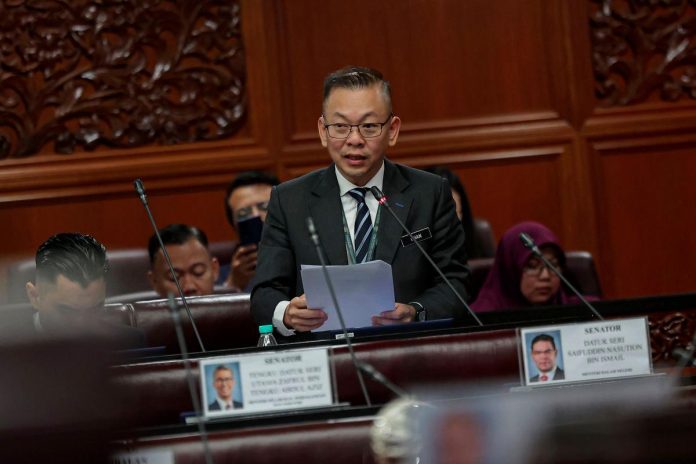KUALA LUMPUR: The government will continue to hold engagement sessions with the European Union (EU) and global organisations to remove Malaysia from “standard risk” status under the benchmarking system of the European Union Deforestation Regulation (EUDR).
Deputy Plantation and Commodities Minister Datuk Chan Foong Hin said that among the matters discussed was the accuracy of the country’s latest forest data, which will be submitted to the Food and Agriculture Organisation of the United Nations (FAO) for the Global Forest Resources Assessment report, for Malaysia’s classification process under the EUDR.
“The government will continue to pursue this engagement method or approach until we are removed from the standard risk (status),” he said during today’s Dewan Rakyat sitting.
Chan was responding to a supplementary question from Syed Saddiq Syed Abdul Rahman (MUDA-Muar) regarding the diplomatic, technical, and policy approaches the government has undertaken to negotiate with the EU and mitigate the impact of non-tariff barriers on Malaysia’s smallholders.
He said the “standard risk” classification by the EUDR does not reflect the actual progress made by Malaysia.
The country’s sustainable palm oil certification (MSPO) has already reached 85 per cent, while its forest coverage is also over 54 per cent compared to the EU’s, which is only around 39 per cent, he said.
Meanwhile, Chan said that to mitigate the impact on smallholders, further efforts have been made via the establishment of a special committee for implementing the EUDR at the national level, which involves several ministries and related agencies.
He said additional efforts include the establishment of an ad-hoc joint task force involving the participation of the Indonesian and EU governments to discuss the best implementation methods for meeting the requirements of the EUDR.
Additionally, he stated that Malaysia has discussed the impact of implementing the EUDR among commodity-producing countries through cooperation platforms, specifically the Council of Palm Oil Producing Countries, the International Tripartite Rubber Council, and the International Cocoa Organisation.
Chan also said the government is enhancing the competitiveness of the agricommodity (agricultural commodity) industry, including expanding the use of agricommodity products among consumers in importing countries through bilateral, multilateral or regional free trade agreements.
“These programmes are implemented to strengthen sustainable agricultural practices and ensure that smallholders are not left out of the supply chain for the European market.
“The Ministry of Plantation and Commodities will continue to carry out consultations with all affected stakeholders to ensure that the implementation of the EUDR will not have a negative impact on the country’s agricommodity sector.
In addition, he said new market potential will continue to be explored while strengthening the country’s share in existing traditional markets. – Bernama








